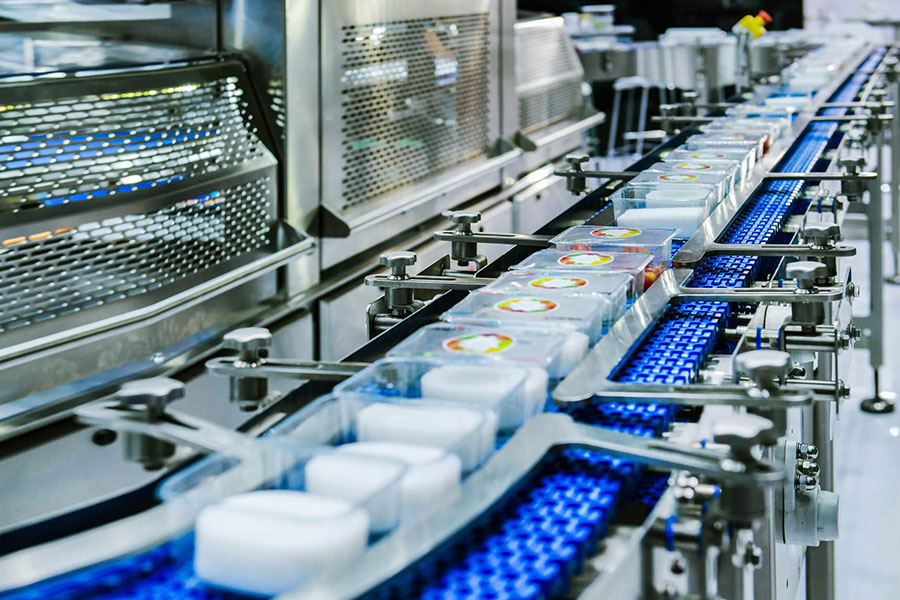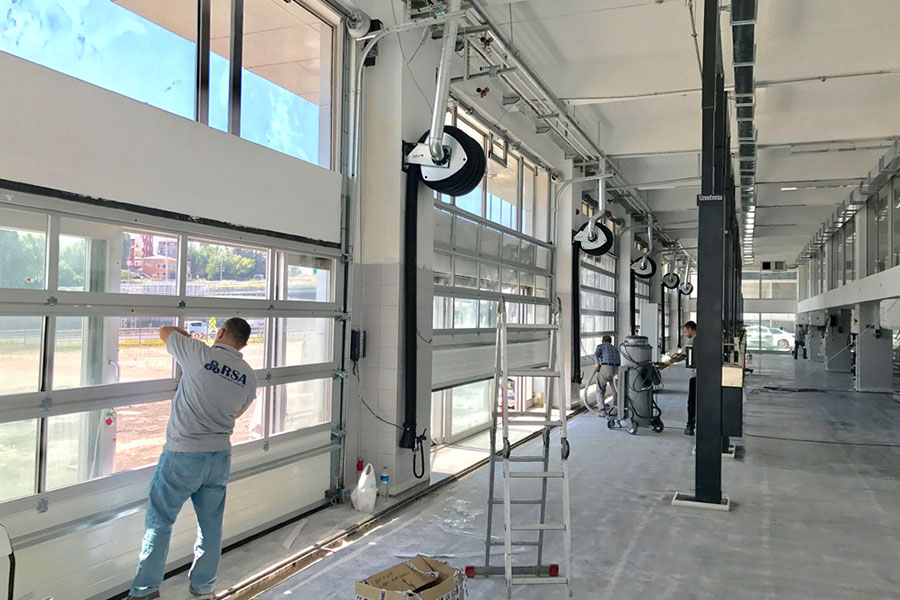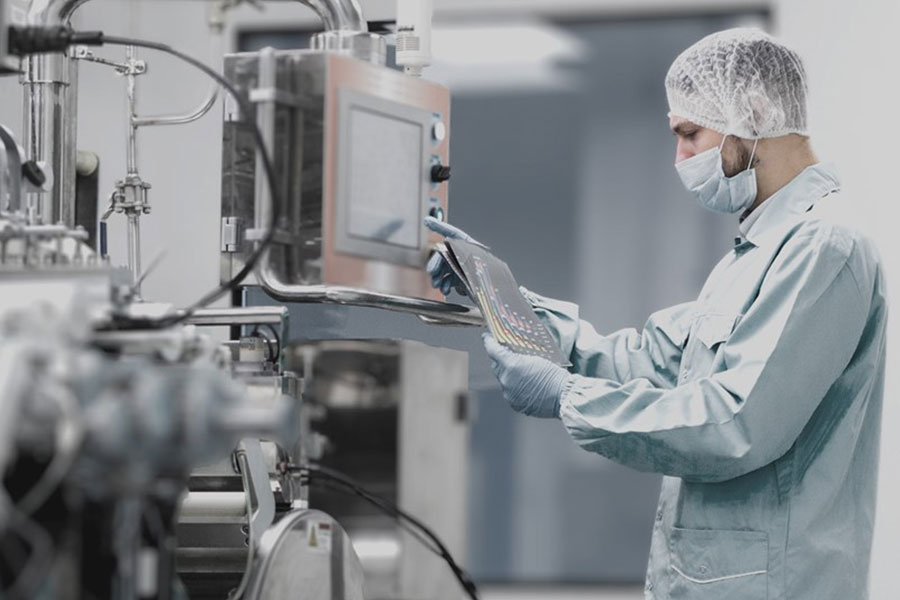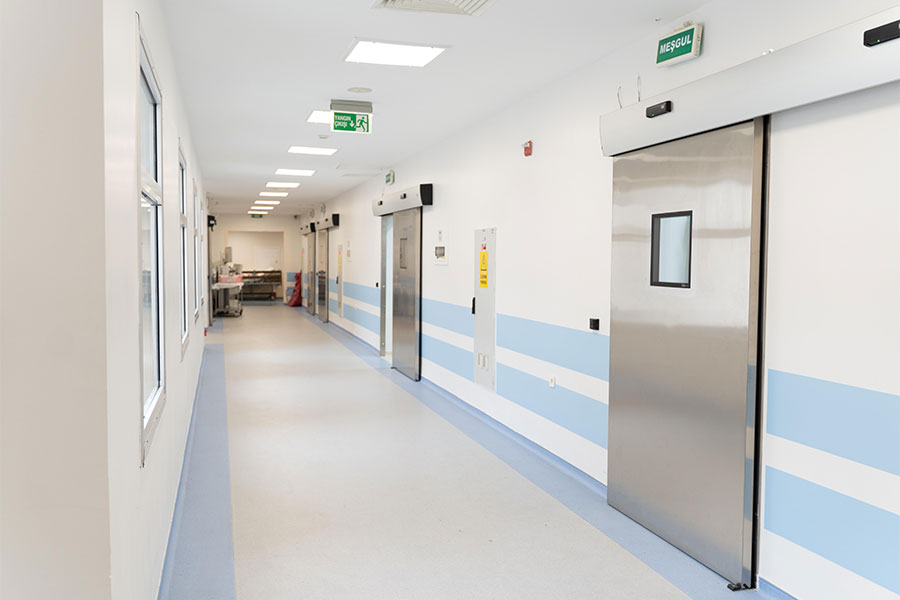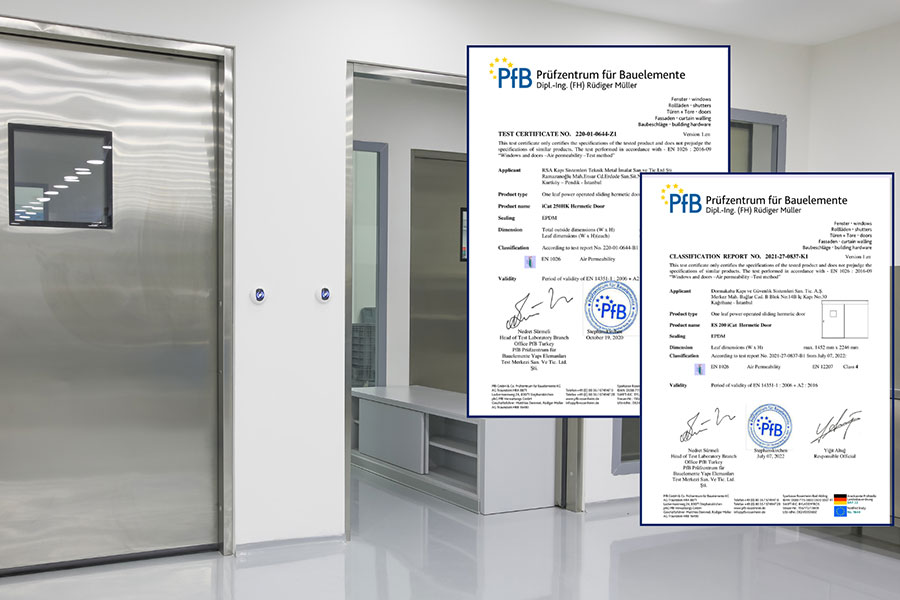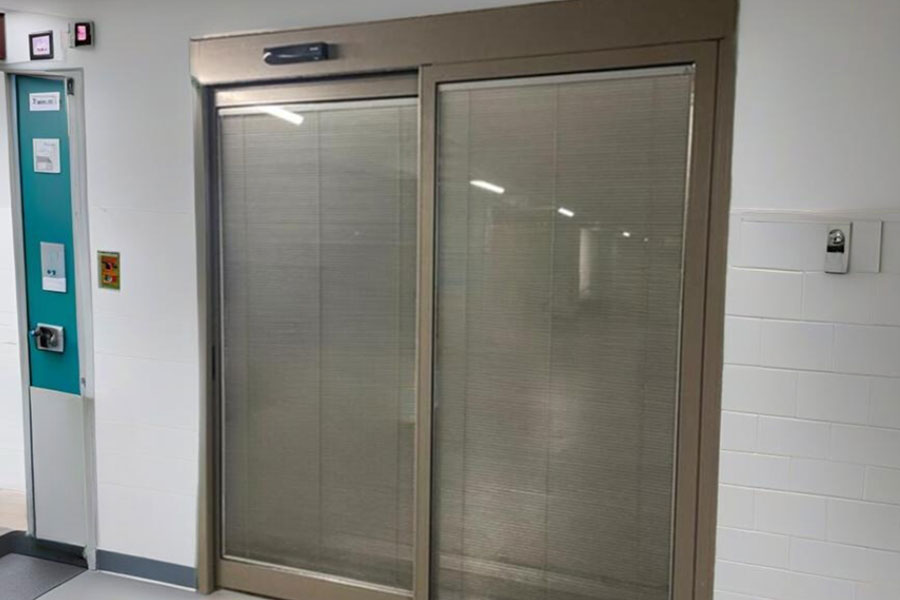
The Impact of Door Design for Intensive Care Units
Intensive care units (ICU) in hospitals are areas where life-saving interventions are performed and patients receive care at their most critical moments. However, the design and features of the doors in these units is an often overlooked but vital element. Intensive care doors are more than just entry and exit points; they have a direct impact on patient safety, infection control and the efficiency of healthcare staff. So, what makes these doors so important?
1. Role in Patient Safety and Infection Control
ICU doors play a critical role in infection control. Hermetic, or airtight, doors help maintain a sterile environment in intensive care units. These airtight doors prevent microorganisms and airborne particles from entering the units and minimize the risk of infection to patients. Furthermore, these doors are made from smooth and easy-to-clean surfaces, ensuring the hygienic standards required to prevent the spread of infections.
2. Importance of Glass Panel Doors in Patient Monitoring
In ICUs, patients need to be under constant surveillance. Doors equipped with large glass panels allow medical staff to monitor patients moment by moment. This design not only increases patient safety, but also allows emergency interventions to be carried out quickly. In addition, the use of glass panels also helps patients to feel safer because they know that they are always under surveillance.
3. Ergonomics of Automatic Doors and Emergency Management
Time is of the essence in intensive care units. Automatic doors allow healthcare workers to pass through quickly, even when their hands are full. This ergonomic design prevents precious seconds from being lost during emergency response. Sensor doors also reduce the risk of spreading germs within the hospital by providing patients and healthcare staff with contactless access.
4. Psychological and Physical Effects of Soundproofing
The noise level in the ICU can directly affect the recovery process of patients. Noise raises stress levels, reduces sleep quality and negatively affects the recovery process. Soundproof doors create a quieter and calmer environment by preventing outside noise from entering the unit and inside noise from escaping. This allows both patients and medical staff to work and recover in a more comfortable environment.
5. The Importance of Fire and Security Resistant Doors
In hospitals, it is mandatory to use doors that comply with safety standards for fire and other emergencies. ICU doors are made of fire-resistant materials, ensuring the safety of patients and staff in the event of a fire. In addition, the ability to open and close doors quickly and easily plays a critical role in emergency evacuation situations.
6. New Technologies and Innovative Door Designs
Today's technology offers innovative solutions for ICU doors. For example, antibacterial coatings prevent the growth of bacteria on door surfaces, raising hygiene standards. Smart lock systems and sensor-based automation solutions increase security and ease of use. And additional features, such as digital displays or integrated alarm systems, allow healthcare staff to quickly access the information they need.
Small Details Make a Big Difference
ICU doors are seemingly simple structural elements, but they play a vital role in the functioning of healthcare facilities. Properly designed doors optimize patient care, make the work of medical staff easier and the hospital environment safer. That's why the engineering and design details behind an ICU door are one of the differentiators in the healthcare industry. On your next hospital visit, perhaps you will take a closer look at the doors once again!
Latest Posts
-
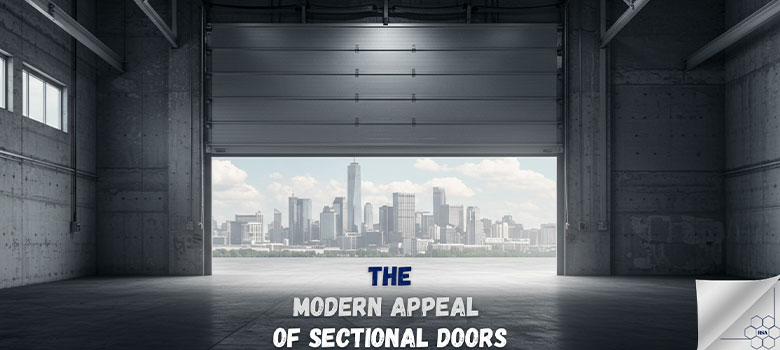 The Modern Appeal of Sectional Doors15 Ocak 2025
The Modern Appeal of Sectional Doors15 Ocak 2025 -
 The Station Nightclub Fire: Importance of Breakout Door Usage10 Ocak 2025
The Station Nightclub Fire: Importance of Breakout Door Usage10 Ocak 2025 -
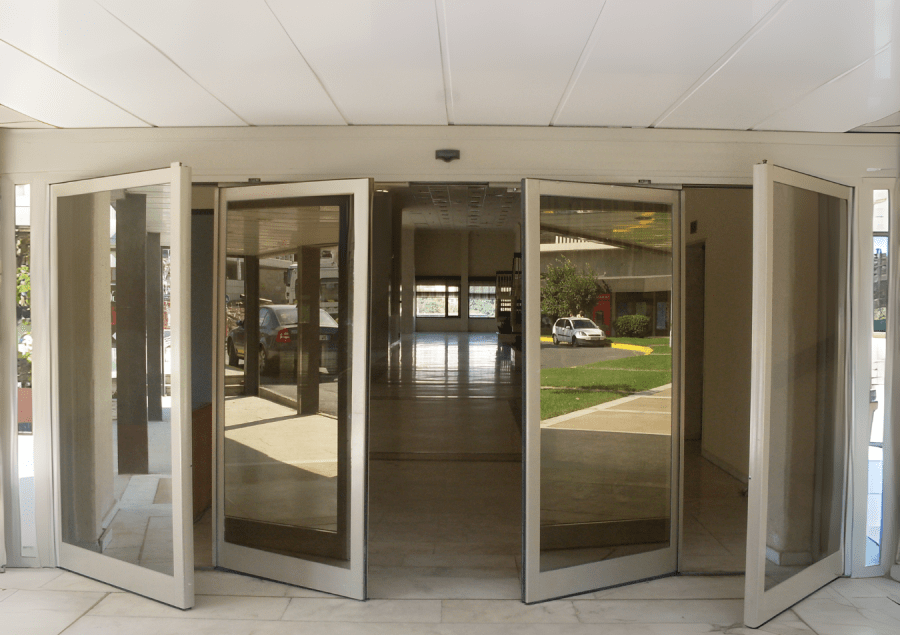 How Anti-Panic Doors Are Transforming Safety in Public Spaces?04 Ocak 2025
How Anti-Panic Doors Are Transforming Safety in Public Spaces?04 Ocak 2025 -
 Smart Buildings Need Smart Doors 🏙️22 Aralık 2024
Smart Buildings Need Smart Doors 🏙️22 Aralık 2024 -
 Unlocking Growth: How the Automatic Door Market Will Double by 203314 Aralık 2024
Unlocking Growth: How the Automatic Door Market Will Double by 203314 Aralık 2024 -
 The Impact of Automatic Doors on Customer Experience in the Retail Sector07 Ekim 2024
The Impact of Automatic Doors on Customer Experience in the Retail Sector07 Ekim 2024 -
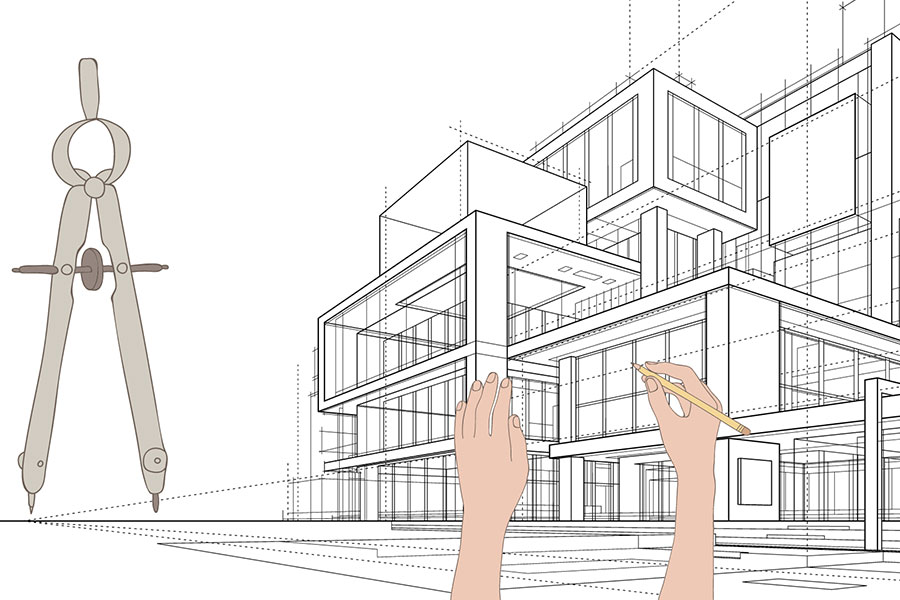 World Architecture Day: Next Generation in Participatory Urban Design02 Ekim 2024
World Architecture Day: Next Generation in Participatory Urban Design02 Ekim 2024 -
 World Green Building Week: Three Steps for Change24 Eylül 2024
World Green Building Week: Three Steps for Change24 Eylül 2024
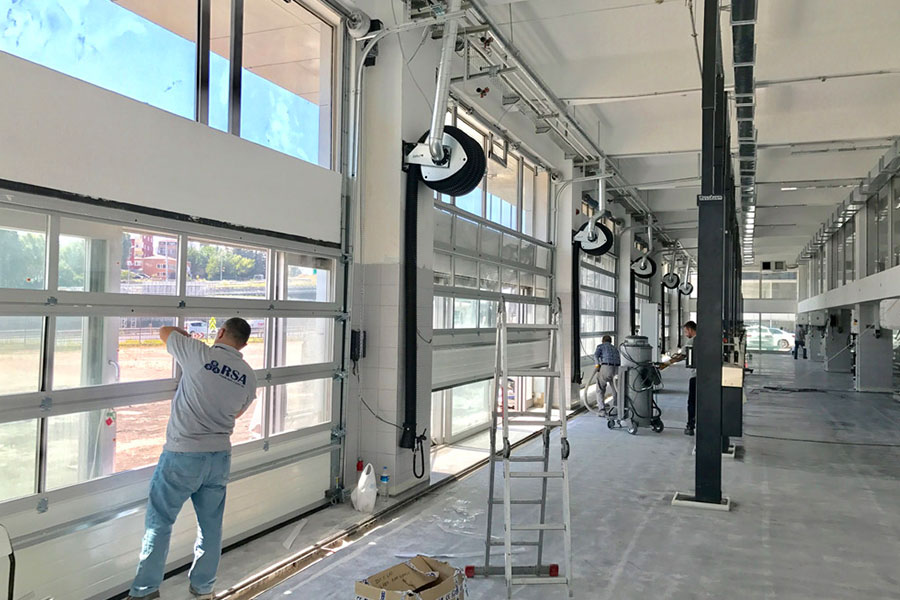
Every Entrance is Special: If Quality Products are Positioned Correctly..


